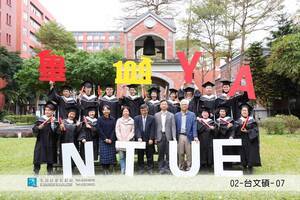History

The Graduate School of Taiwanese Culture was founded on August 1st 2002 to train research and teaching specialists of Taiwan Literature. It was the first graduate school to offer the graduate program of Taiwan Literature among the education universities in Taiwan. On August 1st 2006, the Graduate School launched the master program of Taiwan Culture Education in the College of Continuing Education to promote the instruction of native culture and to improve the professional competence of teachers in primary and junior high schools. On August 1st 2007, the Graduate School renamed itself to the Graduate School of Taiwanese Culture in order to promote Taiwan Studies, and reorganized the master programs into two majors: Taiwan Literature and Taiwan History and Geography. More faculty members have joined the Graduate School to strengthen its research and teaching capacity. The major of Taiwan History and Geography turned to be Taiwan History since August 1st 2009 to focus on the development of research, teaching and promotion of Taiwan literature and history. With the combination of faculty’s specialization, student’s interest and social engagement, it aims at establishing an academic community that contributes to humanities studies and social practice. To expand training in the talents of conserving and creating Taiwanese culture, the Graduate School closed the Master Program of Teaching Taiwanese Culture (Evening) and established the new In-Service Master Program of Taiwanese Culture in August 2015.
The educational objectives of the Graduate School of Taiwanese Culture:
1.To train the talents of Taiwanese literature and Taiwanese history and improve their level of academic knowledge.
2.To train the talents who are capable of teaching Taiwanese culture, history, and languages to strengthen the capability of primary and secondary school teachers.
3.To train the talents in Taiwanese culture and history to expand the reserves of professionals in making educational and cultural policies as well as industrial management.
4.To train the talents of guiding and translating Taiwanese culture and history to improve Taiwan's cultural and tourism industries.




